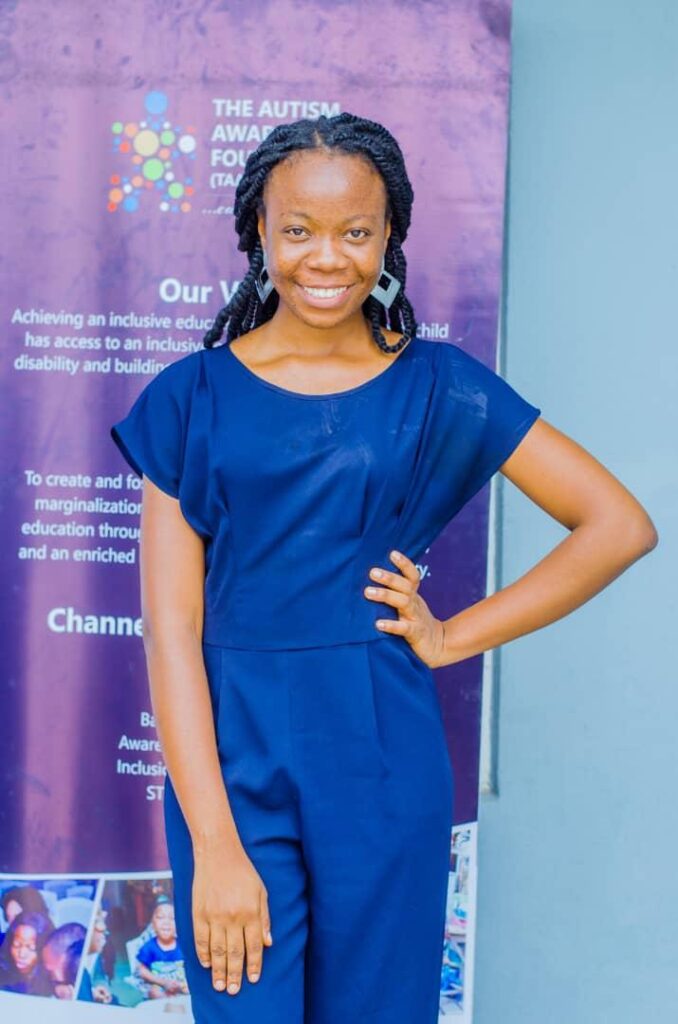Prisca Chika Onuegbu is a Public health professional with keen interest in education and advocacy for children with special needs. She believes every child is unique, with untapped potentials waiting to be rightly harnessed.
Prisca holds a Masters in Public health (Child and Adolescent Health) at the University of Ibadan, Nigeria. She holds a B. Sc in Child Development and Family relations from Obafemi Awolowo University, Ile-Ife, Nigeria. She has facilitated and attended several trainings to support her cause for children with special needs in Nigeria.
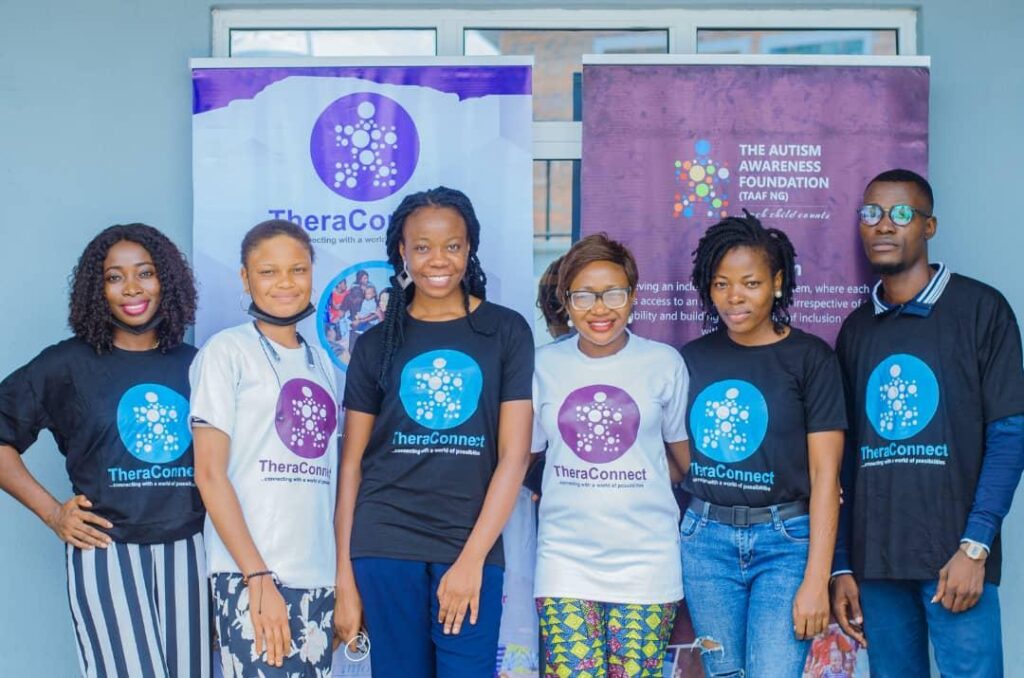
As the Director of Programs at The Autism Awareness Foundation (TAAF NG), she is actively involved in support and advocacy for individuals with autism and other related developmental disorders. She has worked as a therapist at Patrick Speech and Languages Centre, Ikeja, the foremost centre for Autism in Nigeria.
In 2018, Prisca got the ‘Talent of the Future’ awards by Ideation Hub Africa. She was also a 2019 fellow at the Carrington Youth Fellowship Initiative (CYFI), U.S. Consulate, Nigeria.
Prisca is passionate about leadership, excellence and positive impact. She believes a love-infested, inclusive society is possible.
She shares her ‘RUBY GIRL’ story with the team.
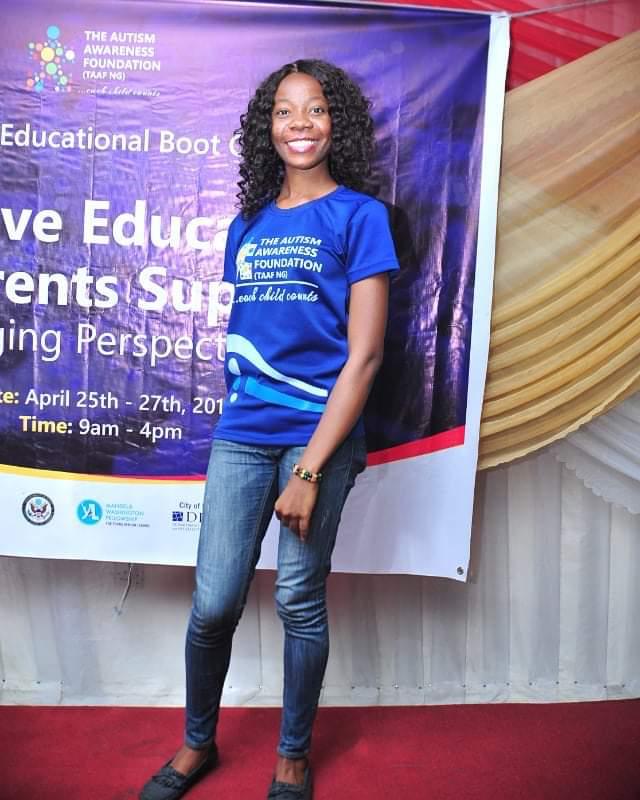
1. Tell us about your childhood. What was growing up like for you?
I had a normal childhood. Born into a Christian home and an academic environment, I was always the caregiver for babies in my compound and parents felt safe leaving their kids with me. I was also given enough room for expression and exploration, so I grew up to making my choices and owning them, of course with the support of my family.
2. What inspired your interest in children with special needs?
Well, I’ve always loved children generally. Then my course of study exposed me to developmental milestones and challenges. It was then that I stumbled on the word AUTISM. I was going to make it my project topic but I was discouraged from going that route, partly because most of my lecturers were not familiar with the condition and partly because there had been little research done on Autism in Nigeria.
The backlash I received strengthened my resolve to connect and work with children on the Autism spectrum. Thankfully, I met a woman who owned a centre for Autism in Ile-Ife. I visited the centre, saw the peculiarities of the children there, and decided that this was a cause I was going to stand for – enlightening more people about Autism and other special needs.
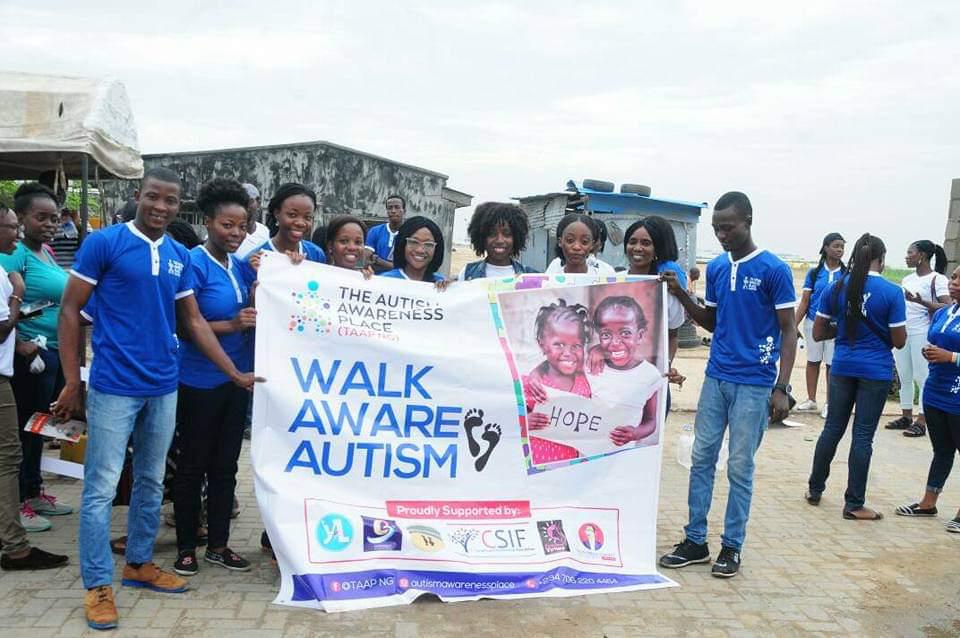
3. What inspired you to study Child Development and Family Relation?
The background story is that I gained admission into two institutions of my choice, one was to study Medicine and the other to study Child Development and Family Relation. I never really liked the idea of studying Medicine, my childhood dream was to be a journalist but somehow I found myself in science class. In all, my love for children, the idea of escaping medicine, and staying away from home was how I got here (grins).
4. How has serving as a volunteer for children with special needs influenced you?
It has made me more empathetic. Empathy is different from sympathy. You can’t pity them, in fact, they don’t love to be pitied. They want you to see the strength in them and help them thrive. I have also learnt patience. My family members are still amazed at how soft I can be around children with special needs when I could be the ‘madam’ at home (laughs). But then, I guess it’s what passion does to you – brings out your soft and creative skills.

5. Can you give us an insight into Child and Adolescent Health?
Child and Adolescent Health is an arm of Public Health that focuses on improving the health and well-being of children and adolescents. Childhood is the foundation of life and adolescence is when most children are trying to discover their essence as they transition into adulthood.
Children and Adolescents are usually faced with different health challenges including developmental delays and disabilities, mental health conditions, injuries, communicable and non-communicable diseases. While growing up, it is important that they are provided with adequate caregiving and health-care services, nutrition, and safe environments. Child and Adolescent health shows us that the extent to which society invests in the health and well-being of children and adolescents will determine the future – not just for them, but for everyone.
6. You received the “Talent of the future” awards in 2018, how did that make you feel?
I felt really elated and encouraged to keep showing up. First of all, I am not the Founder of The Autism Awareness Foundation but the founder felt I deserved it because of how invested I was in the Initiative. Someone called it ‘passionately owning a vision in other people’s vision’. Maybe that was it but I’ve always believed that value never goes unrewarded. So, it was a great reward to be
recognised at that time.
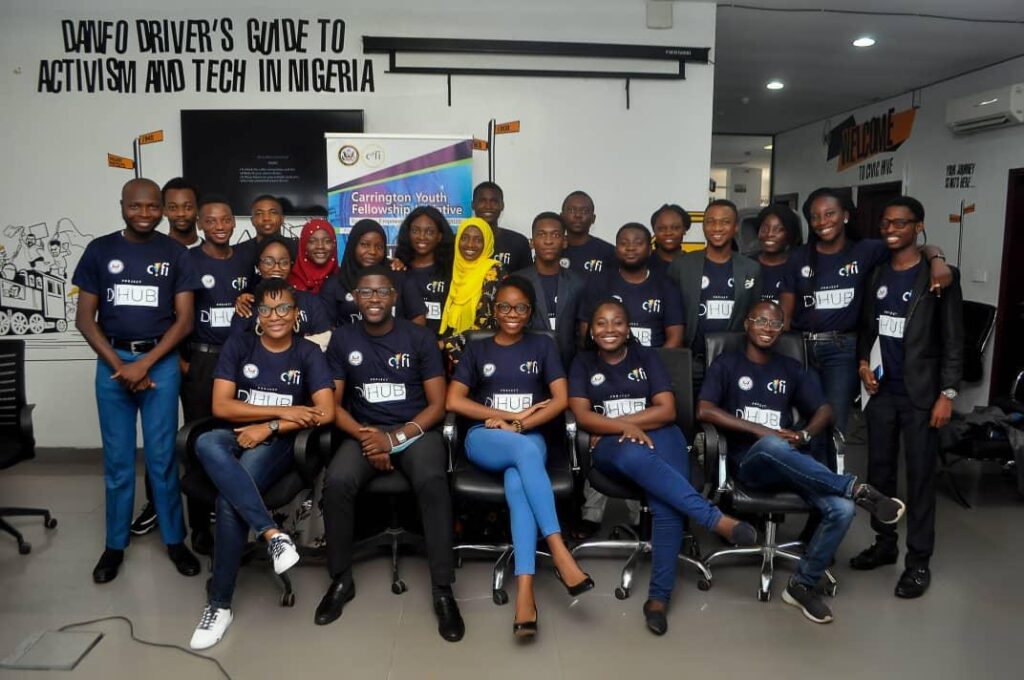
7. What was your experience in the foremost centre for Autism in Nigeria as a Therapist?
Working at Patrick Speech as a Special needs therapist armed me with most of the experiences and skills I needed to work with children with Autism and other developmental disabilities. It’s one thing to be knowledgeable and it’s another thing to be experienced. I have seen and worked with children on different aspects of the Autism spectrum which has boosted my confidence in advocating for them.
8. What is the highest and lowest point of your journey as a volunteer, advocate and leader and how did you overcome them?
Highest point, I’ll say is the recognition of my work. I’m always glad when people see opportunities and the person who comes to mind is Prisca. I have gotten referrals and job connections simply by volunteering and speaking up about what I know.
Lowest point is trying to convince people that I don’t have the kind of money they think I have. Because you are quite loud about what you do on social media, some people think it’s synonymous to you making money and then you start dealing with pressures from different fronts. But you see this money people think I have /ehn/, I will have plenty of it /ooo/ (laughs).
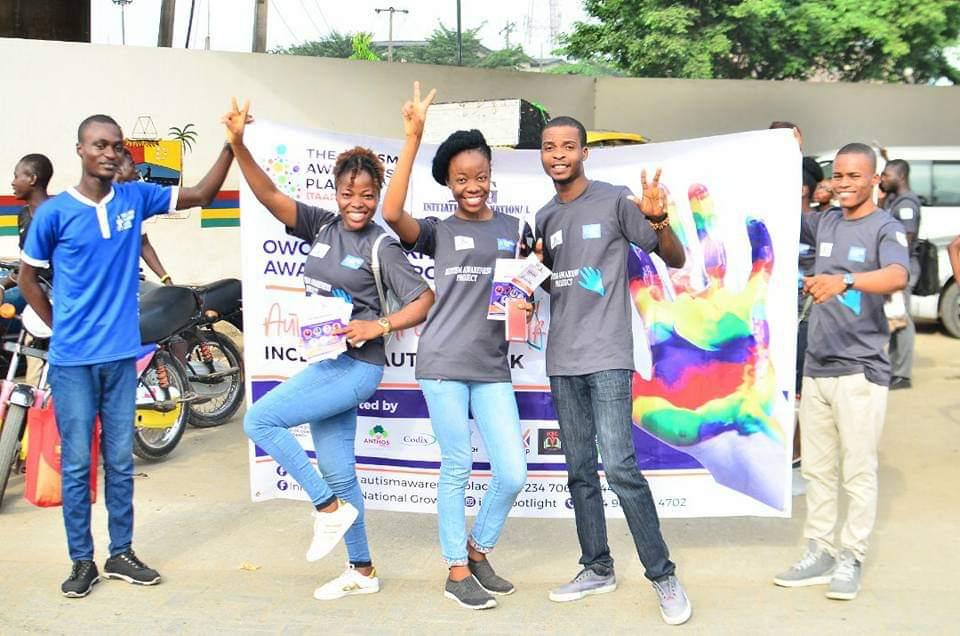
9. What would you like to change about yourself?
Hmm…I’m not sure there’s anything I really want to change about myself for now except that I’m really introverted and I get to hold back on meeting new people. But it’s being worked on. Networking is key in the development space.
10. As a Carrington Youth Fellow, what are the lessons and project you learnt and implemented during your stay as a fellow?
The first lesson was ‘the decision of the team overrides your personal decision’. So, you must do everything to ensure your team excels. I also picked the value of interdependence, we all need one another to make things happen. I was in the economic empowerment team and during our cycle, we worked with the US consulate to empower 30 Nigerian youths with Data Analysis and Management skills.
11. If you were the President of Nigeria for a day, what would you change?
I’ll change the system of accountability. It’s a major thing we lack in Nigeria. We must begin to hold ourselves accountable for our actions and promises. And it doesn’t just start from being the President of a nation, it starts from the smallest unit of the society – the home.
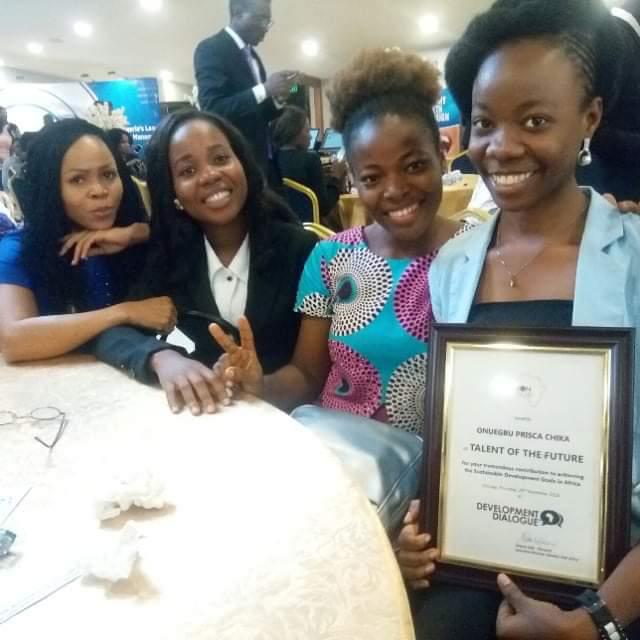
12. Where do you see yourself and your career in the next 5 years?
In key leadership and decision-making position, thriving and 10 times better than I am today.
13. If you were given the opportunity to address a group of girls five years younger than you, what will be your advice to them?
Always strive to be a person of value. Before you think about what you stand to gain, be sure you are bringing something to the table. Value always begets value, and preserves your relevance.
_Thank you for your time, ma. We’re most grateful_
